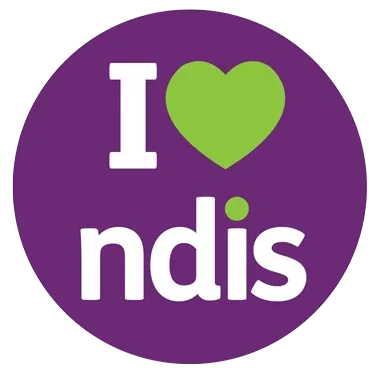Mental Health, Social Work, Domestic Violence, Child Protection Support, Justice System, and Homelessness Support

Mental Health Support Services
Prioritising Recovery and Emotional Wellbeing
Mental health is as important as physical health, but people do not know how to care for their minds and bodies. Mental health support services providers focus on recovery through empathy and practical help. Support Point can find Mental Health workers for children, youth and adults who experience anxiety, depression, trauma, psychosis, bipolar disorder, post-traumatic stress and other mental health conditions.
We look for Mental Health Service providers who provide:
- Person-Centred & Collaborative: This involves listening to your history, strengths, needs, and hopes. Since everyone is different, plans are developed to meet individual needs.
- Safe & Confidential: provide a place to share and heal, without judging you
- Daily Life Skills: Assist with stress management to establish stability and confidence.
- Professional Connections: collaborative approach with relevant professionals. Such as psychologists, psychiatrists, and occupational therapists.
- Ongoing Support: regular check-ins, crisis planning, and inclusion in social and community activities help reduce loneliness, prevent relapse, and build a sense of belonging.
Mental Health Support Services
Prioritising Recovery and Emotional Wellbeing
Mental health is as important as physical health, but people do not know how to care for their minds and bodies. Mental health support services providers focus on recovery through empathy and practical help. Support Point can find Mental Health workers for children, youth and adults who experience anxiety, depression, trauma, psychosis, bipolar disorder, post-traumatic stress and other mental health conditions.
We look for Mental Health Service providers who provide:
- Person-Centred & Collaborative: This involves listening to your history, strengths, needs, and hopes. Since everyone is different, plans are developed to meet individual needs.
- Safe & Confidential: provide a place to share and heal, without judging you
- Daily Life Skills: Assist with stress management to establish stability and confidence.
- Professional Connections: collaborative approach with relevant professionals. Such as psychologists, psychiatrists, and occupational therapists.
- Ongoing Support: regular check-ins, crisis planning, and inclusion in social and community activities help reduce loneliness, prevent relapse, and build a sense of belonging.

Domestic Violence & Child Protection Support
Safe, Discreet, and Empowering Help for Families
Domestic and family violence causes long-term effects on both people and their families. Participants who are escaping violence and those families dealing with DV need discreet trauma-informed care.
Support Point Coordinators can help you find the suitable Domestic Violence and Child Protection Support services that can offer the following services:
Domestic Violence Support
- Safety First: Safety plans for emergencies and help for people who are at risk of being hurt
- Crisis Accommodation: Safe housing and emergency shelters are quickly made available to clients
- Legal Advocacy: Assistance with Domestic Violence Orders and help with the justice system
- Emotional Care: Trauma recovery support with specialist counsellors and peer support networks
- Long-Term Empowerment: Ongoing help with accessing financial support, education, employment and housing for a new beginning
Child Protection Support
- Family Advocacy: work with statutory agencies, foster carers, and families to ensure the child's safety while embracing the family's culture and strengths.
- Supervised Contact: The safe supervision of family visits, which allows for trust and healthy relationships to be rebuilt
- Parenting Support: Support and education for parents, as well as links to community programs
- Emotional Support: Assistance to parents and children in coping with the anxiety and grief of family separation, with the child’s best interests as the priority
Maternal & Neonatal Health Support
Helping Families Grow Strong from the Very Start
Helping Families Grow Strong
from the Very Start
Support Point understands the unique needs of expectant mothers, new parents, and infants, especially when disability, disadvantage, or social complexity are involved. Our Coordinators will explore suitable Maternal and neonatal Health Support providers who provide caring, hands-on help throughout pregnancy, birth, and the early years. These Agencies help individuals obtain prenatal care appointments, postnatal check-ups, and early childhood health clinic visits. And help with the following:
- Education: Support with childbirth preparation, breastfeeding, immunisations, and baby care routines
- Mental Health: Specialised support for mothers experiencing postnatal depression, anxiety, or social isolation
- Peer Connections: Linking families with community groups, peer support networks, and parent mentors
- Practical Help: Help securing housing, financial aid, baby supplies, and building independent living skills
- Cultural Respect: honouring every family’s tradition, background, and values—supporting both Aboriginal and culturally diverse families


Justice System & Homelessness Support
Justice System &
Homelessness Support
Expert Help for Legal and Housing Challenges
Expert Help for Legal and
Housing Challenges
The court system, with its connections to police, corrections, and probation services, creates overwhelming challenges, particularly for individuals with disabilities. We can find and coordinate the services in your town that can offer the following services:

Justice System Support
- Explain legal rights and processes in plain English
- Support compliance with court orders and parole conditions
- Help access legal representation and advocacy when needed
- Assist with pre-release planning, safe housing, links to health care, and employment support
- Assist in ongoing psychosocial support to reduce re-offending risks and promote social inclusion
Homelessness Support
Stable housing is fundamental to recovery and well-being. NDIS participants receive help from the Support Point Coordinator to obtain priority housing status, which includes crisis and transitional accommodation. With adequate funding, we can help you with the following tasks”
- Apply for priority housing, including crisis or transitional accommodation
- Secure safe, long-term housing solutions
- Learn budgeting and tenancy skills to maintain a stable home
- Connect with mental health, addiction, or family support services to address barriers to housing
- Receive practical support with moving, setting up a home, and accessing community resources
Support Point can link participants
to Mental Health & Social Work Services.
Participants who face significant adversity, traumatic events, and complicated situations such as Domestic Violence, Child Protection Support, the Justice System, or Homelessness may need Mental Health and Social Work support to achieve their NDIS Journey. Support Point will source Mental Health and social Work services that can provide comprehensive expert support to NDIS participants and their families throughout this journey. Most of these services should be available for free from mainstream organisations.
The Support Point Difference
Support Point partners with participants to achieve growth and recovery while promoting inclusivity through its services. We recognise the courage needed to seek help, so we accompany people without criticism while delivering complete support. All our services operate through fundamental principles of respect, empathy, and faith in human recovery potential.
Why Choose Support Point?
We work with providers who follow the following principles.
Trauma-Informed Practice
Approach is always non-judgmental, sensitive, and focused on recovery
Confidential, Flexible Support
Respecting your privacy and tailoring services to your unique needs—at home, in the community, or via telehealth
Strong Community Partnerships
Collaborating with healthcare providers, legal advocates, housing agencies, and community groups for seamless support
Cultural Sensitivity
Welcoming and respecting people from all backgrounds, with a commitment to Aboriginal and Torres Strait Islander participants
Frequently Asked
Questions

1. Who can access support from Support Point?
NDIS participants who need help with mental health issues, social problems, Domestic Violence, Child Protection Support, the Justice System, or Homelessness can get help from Support Point. Our Support Coordinators will link you with suitable services ( both Mainstream and NDIS-funded) based on your NDIS goals and funding.
2. Is Support Point’s approach confidential?
Absolutely. We maintain strict privacy standards to handle information with respect and discretion.
3. Can Support Point help with court or housing matters?
We will coordinate and link you with organisations experienced in legal advocacy and housing support, and work together with legal, justice, and housing services.
4. Do you offer support for children and families?
Yes, we will coordinate and connect you with services that can provide services for individuals of all ages, including parenting support, supervised contact, and family group conferencing.
5. Are services available in regional and remote areas?
We offer our services to metropolitan, rural, and remote areas through telehealth options.
Start Your Journey to Wellbeing Today
Start Your Journey to
Wellbeing Today
Support Point helps NDIS participants who need help with mental health issues, social problems, Domestic Violence, Child Protection Support, the Justice System, or Homelessness. Contact our supportive team to learn about our assistance for your well-being, stability, and independence goals.

